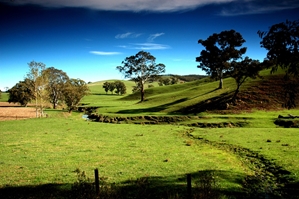Minister for Natural Resources and Mines Andrew Cripps announced the Queensland government’s $1.5 million investment on March 12.
“The funding commitment is part of our $8 million Rural Water Use Efficiency for Irrigation Futures program to promote productive and responsible on-farm water management,” he said.
Mr Cripps revealed this investment has been made to further the state and federal governments’ commitment to helping promote the agriculture sector as one of Queensland’s “four economic pillars”. This funding is expected to help businesses operating within the sector to “minimise costs, improve productivity and use resources more responsibly”, he explained.
The $1.5 million grant will be used to run a program under the supervision of project manager Canegrowers. This organisation has planned to support Burdekin irrigators over the next four years, in order to deliver the irrigation projects on behalf of the government.
“Canegrowers will install bores to reduce water table depth in the Burdekin and will also develop weather and soil moisture networks to assist irrigators to better schedule their water use,” Member for Burdekin Rosemary Menkens said
“Across the Burdekin region, the funding will deliver 80 irrigation system evaluation reports, the development of 60 farm irrigation plans, allow for 120 farm visits and enable 28 field days to be held showcasing best practice on-farm water management.”
In addition to this important funding, the Queensland government has also announced its support to help address rising groundwater levels in the Burdekin region.
Mr Cripps explained the government has worked with key community groups over the past two years to develop a range of solutions to this problem – such as supervising irrigation techniques and water delivery activities, encouraging water efficiency, changing land use and the responsible removal and disposal of excess groundwater.
“We are committed to ensuring Queensland’s water resources are used responsibly and productively for everyone’s benefit, while retaining certainty and security of water entitlements,” Mr Cripps said.
“We want to encourage a sustainable irrigated agricultural industry and support economic development and this report identifies how we can best manage our groundwater to ensure we achieve these goals.”
The issue of rising groundwater has been largely attributed to the increased use of water from the Burdekin Falls Dam for irrigation in the sugarcane industry.
“Rising groundwater can cause salinity issues and water logging of land,” Mr Cripps explained. “Canegrowers can be affected through lower cane yields and, ultimately, lost agricultural land.”
Addressing this problem is an important factor in boosting agriculture in the region. Once a solution is found, irrigation and growing will be able to increase to meet rising demand across Australia.
By Leanne de Toerkenczy, Public Relations Coordinator
